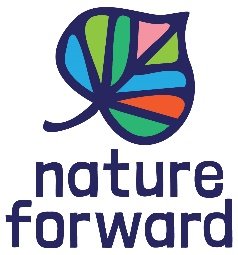Bird Safe NOVA is a partnership between the Northern Virginia Bird Alliance (NVBA), Loudoun Wildlife Conservancy, Nature Forward, DarkSky NOVA, DarkSky Virginia, Friends of Dyke Marsh, Friends of Little Hunting Creek and Friends of Huntley Meadows Park that focuses on reducing the hazards to birds from light pollution and collisions with windows and other reflective surfaces.
Watch a recording of our recent online program to learn more about what you can do to help reduce risks to migrating birds created by light pollution and window collisions.
Lights Out for Birds
Purple Martins, Keith Kingdon/Audubon Photography Awards
More than 100 million birds migrate through northern Virginia each spring and 160 million birds, their numbers swelled by a successful breeding season, migrate south through northern Virginia each fall. Most birds migrate at night to take advantage of calmer winds and lower temperatures, relying on the moon and the stars to help them navigate. The birds can be disoriented by bright lights from tall buildings and sky glow from light pollution. Some crash into the buildings and are injured or die. Other birds fly around the lights, exhausting themselves. Even if the birds escape the lights and fly on, they have squandered the energy needed to make their demanding journeys, making it less likely that they will reach their intended destinations.
Bird Safe NOVA’s Lights Out for Birds campaign is a voluntary program that involves turning off and/or blocking as many external and internal building lights at workplaces as possible at night to help prevent the death or injury of birds migrating through our area. The key times to reduce lighting to protect migratory birds are during peak migration, which in northern Virginia is from 11 PM to 6 AM, March 15 through May 31 and September 1 through November 15. Bird Safe NOVA joins Lights Out programs throughout the United States that focus on turning off excess lights during the spring and fall bird migrations.
Lights Out actions to help protect our birds include the following:
Turn off interior lighting at night, especially on upper floors
Substitute task and area lighting for workers staying late
Close curtains or blinds
Down-shield exterior lighting or limit lights to the ground level
Turn off exterior decorative lighting
Reduce lobby and atrium lighting
Extinguish spotlights and floodlights
Restore the Night
2012 composite image published in Science News, June 10, 2016
Bird Safe NOVA also works year-round to reduce light pollution. Light pollution is the result of bad lighting: lights that are unshielded, misaimed, too bright, too white or on all night. According to the University of California at Los Angeles, artificial light is increasing by 10% each year. It disrupts wildlife, impacts human health, and contributes to climate change. Nearly 80% of North Americans can no longer see the Milky Way because of excessive nighttime lights.
DarkSky International and its local chapters DarkSky NOVA and DarkSky Virginia are leaders in the efforts to reduce light pollution. DarkSky International’s Five Principles for Responsible Outdoor Lighting provide excellent guidance on how to reduce light pollution. The Bird Safe NOVA partnership will help broaden their message about the importance of reducing lighting and work with local organizations and governments to help reclaim the night sky.
Want to know more? Listen to this podcast from Rewilding Earth about how darker skies protect birds.
Bird Safe Buildings
Building in Reston, VA. Photo: Tom Blackburn
More than 1 billion birds die from collisions with windows in the United States each year. Birds don’t recognize glass. They mistake the reflection of trees and vegetation in a window for open space and fly into it. One to three story buildings, including homes, cause 44% of the deaths, and buildings four to eleven stories high cause 56% of the deaths.
Bird Safe Buildings seeks to reduce the number of bird collisions with windows and other reflective surfaces by making it easier for birds to recognize and avoid them. Programs to help birds recognize glass can be highly effective in reducing the number of bird deaths from hitting glass. The American Bird Conservancy has excellent materials on how to reduce bird collisions. We also encourage you to review this how-to video on our website. The National Audubon Society’s Bird-Friendly Buildings program seeks to reduce bird collisions through voluntary action and legislative solutions. Our Bird Safe Buildings campaign educates the public about the importance of protecting birds from window collisions, encourages building owners to retrofit their buildings to make them more bird-friendly, and advocates for local governments to require commercial buildings to install bird-friendly glass or retrofit their buildings to make them safer for birds.
Get Involved
Do you want to participate in the Bird Safe NOVA campaign? Contact us at advocacy@nvbirdalliance.org.














